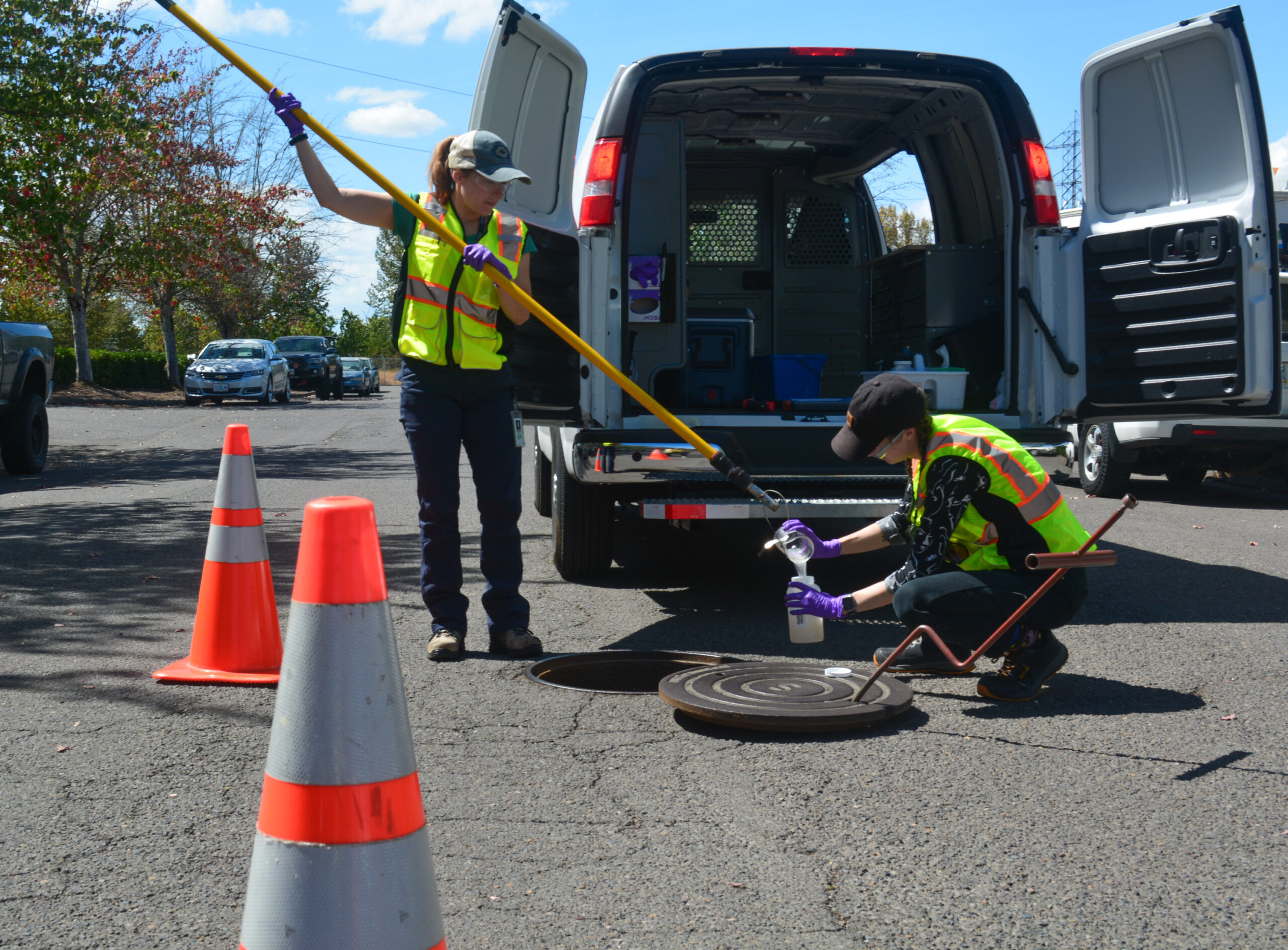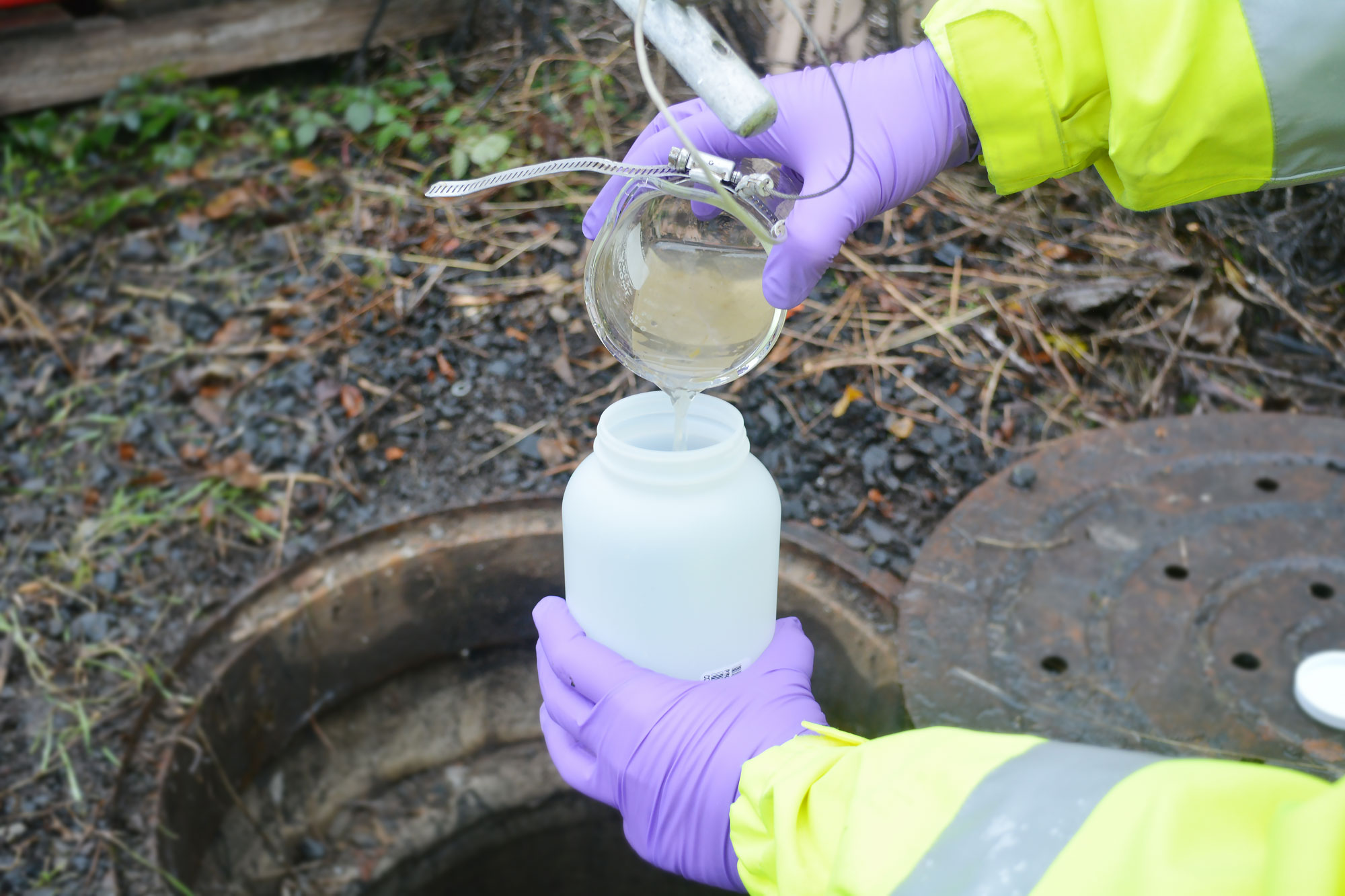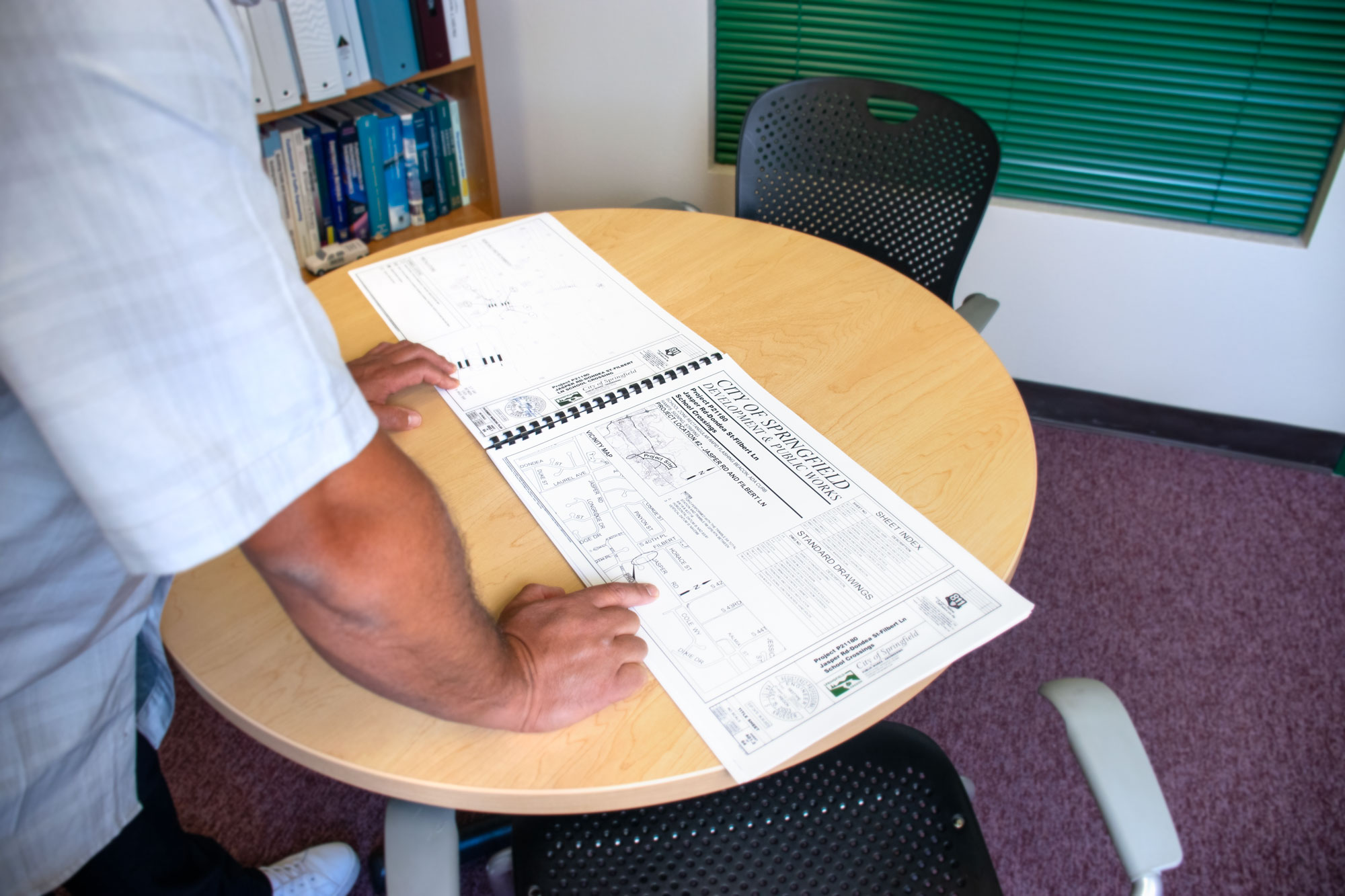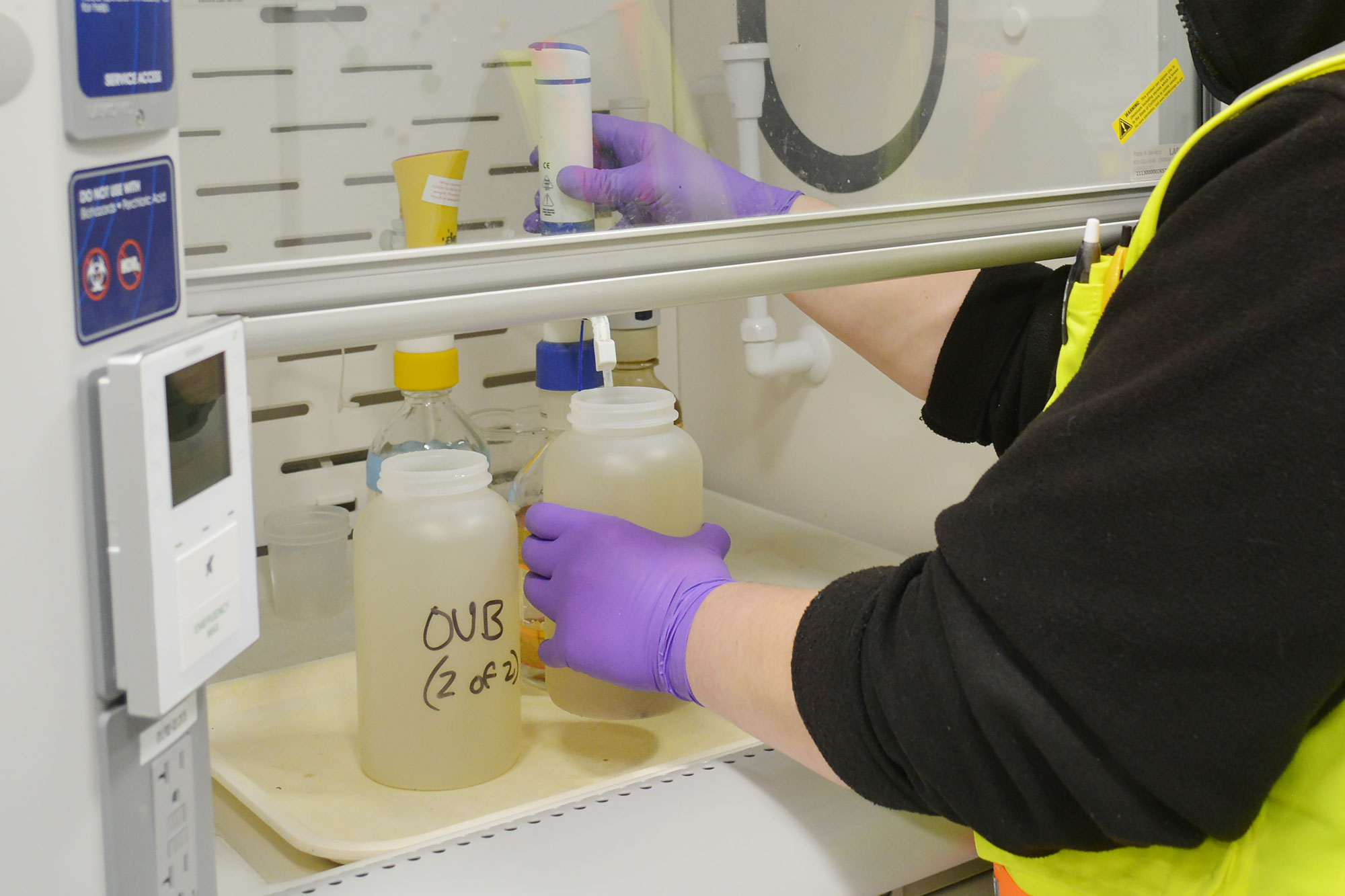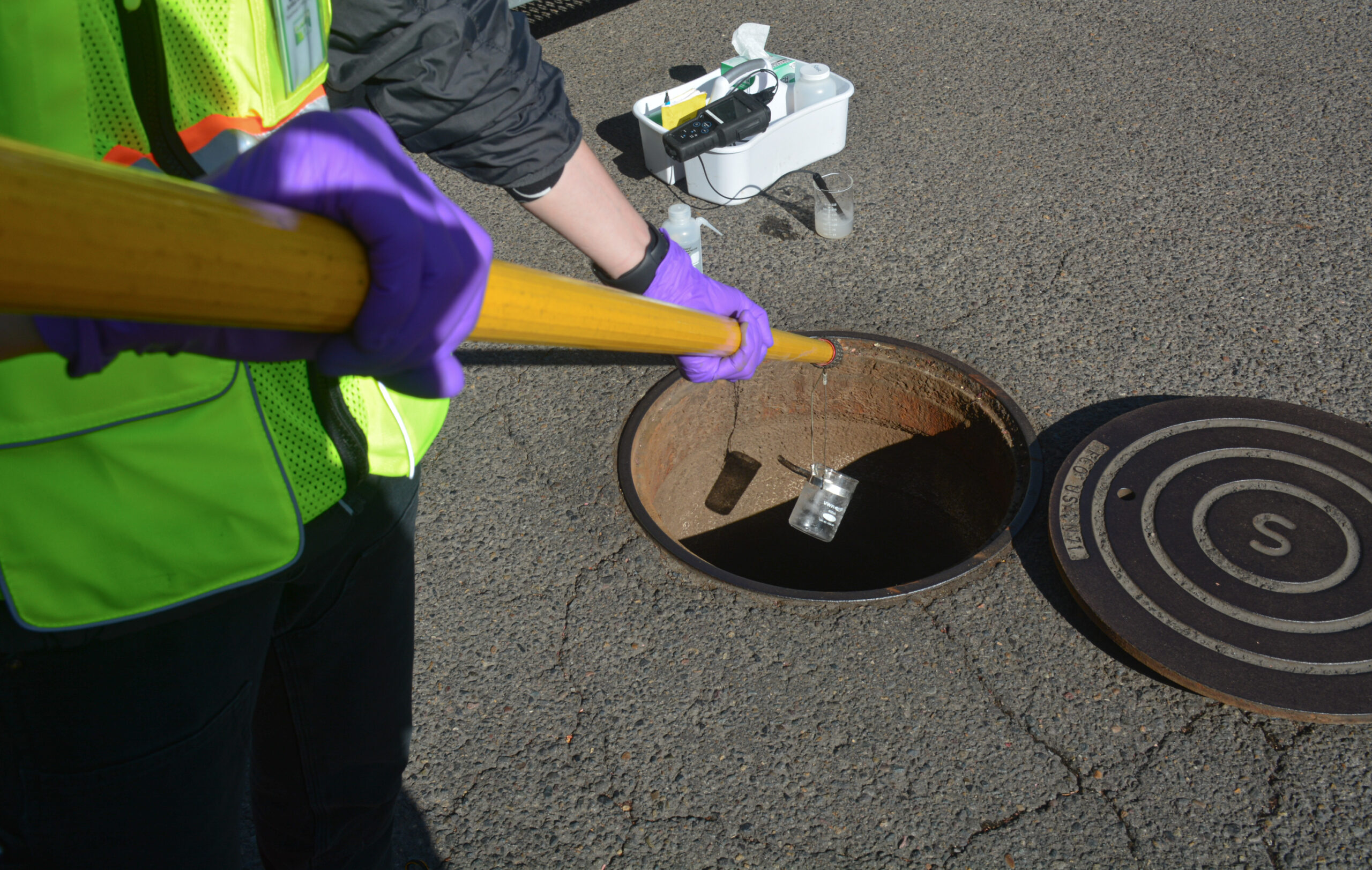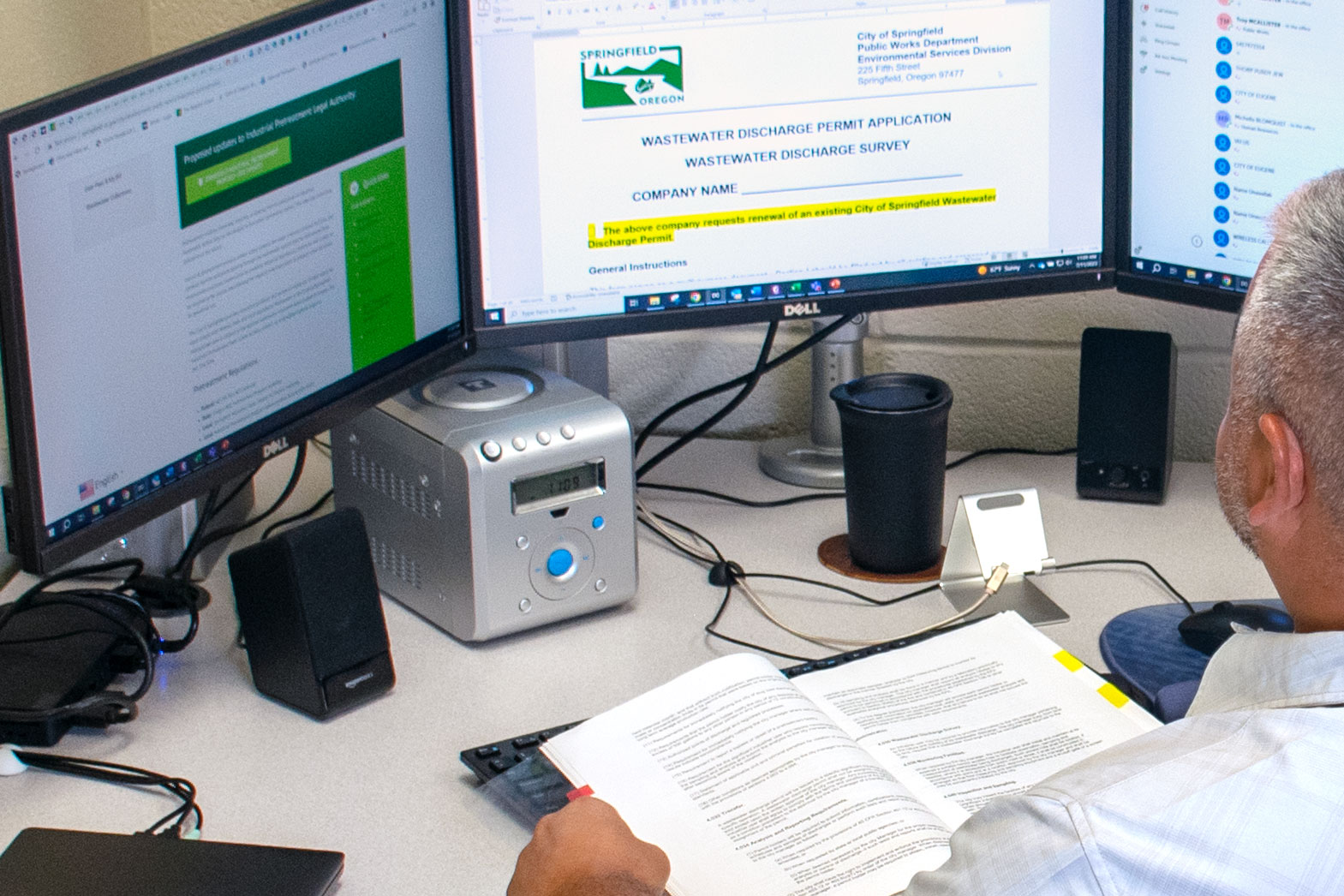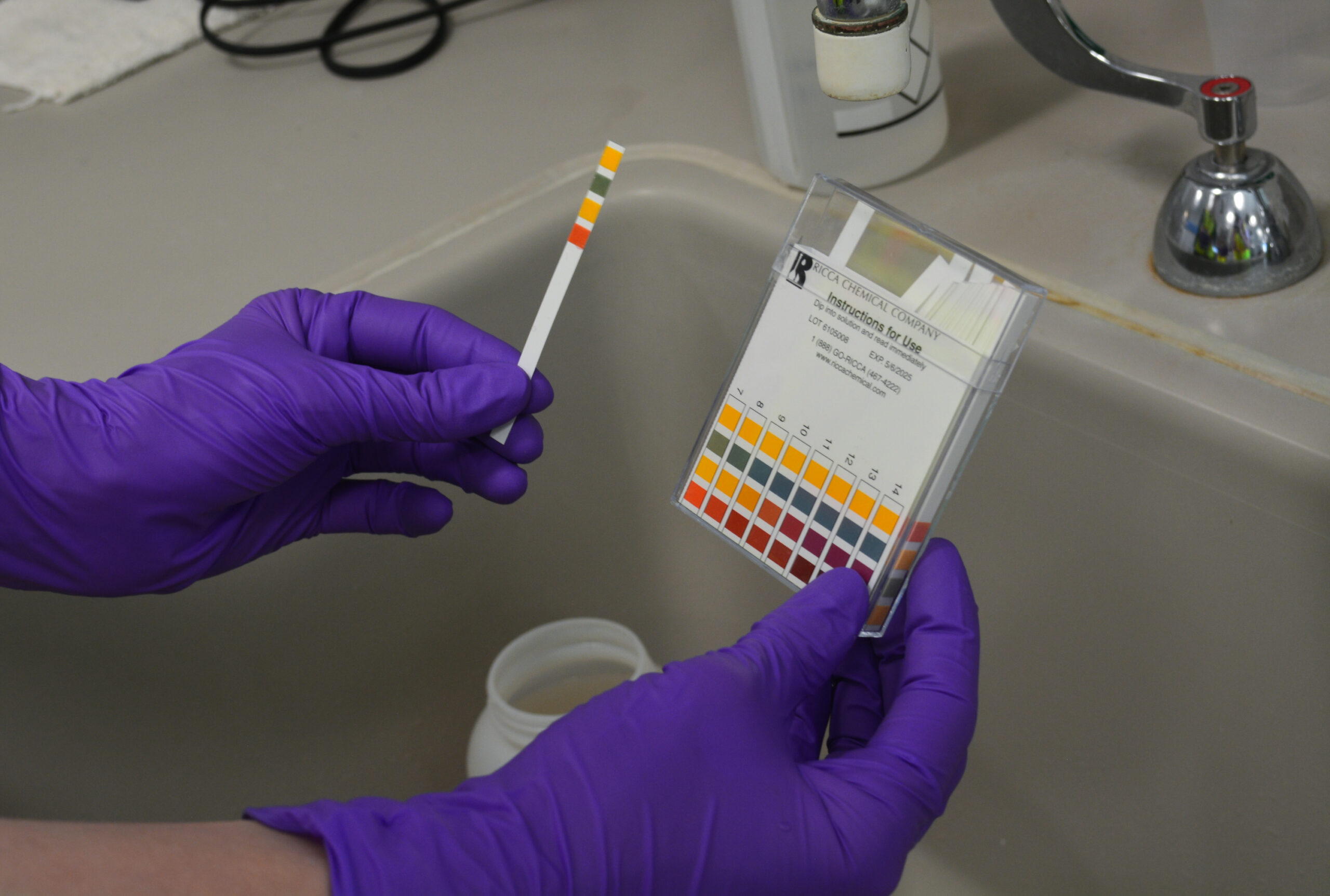Industrial Pretreatment
Pretreatment involves removing, reducing, or altering harmful pollutants in industrial wastewater before they are discharged to the public wastewater system. This requires controlling pollutants at the source.
Industrial pretreatment protects worker safety, protects the water resource recovery facilities, and prevents harmful pollutants passing through the wastewater system into the Willamette River. Pretreatment promotes conservation by enabling industrial byproducts, chemicals and metals to be recycled at the source, and allowing the regional treatment plant to produce clean Biosolids for beneficial use.
The City of Springfield provides consistent guidance and technical assistance to help industrial users comply with federal, state, and local regulations. Wastewater in the Eugene/Springfield metropolitan area is cleaned at the regional wastewater treatment plant located in Eugene. Our Industrial Pretreatment Team is here to help; contact us at dpw@springfield-or.gov or 541.726.3694.
The United States Environmental Protection Agency (EPA) mandates industrial pretreatment to keep pollutants and substances that disrupt wastewater treatment processes out of the wastewater system, requiring industries to control them at the source.
The City of Springfield is responsible to Oregon Department of Environmental Quality (DEQ) and EPA for regulating and enforcing pretreatment requirements within City Limits and issues several types of discharge permits and authorizations.
The City of Springfield works with the regulated community to control process wastewater and help to protect our collective environment. Permitted industries are monitored for compliance on a regular basis through sampling and analysis, spill control plans and regular facility inspections.
If your business or industry discharges anything other than sanitary or domestic wastewater, you might need a wastewater discharge permit. Fill out an Industrial Users Survey to find out. An Environmental Services Technician will contact you after you complete the survey, and you may be asked to fill out a Wastewater Discharge Permit Application.
- Categorical Industrial User (CIU)
A CIU permit is a specific kind of SIU permit issued when the proposed discharge is subject to categorical pretreatment standards under Title 40 of the Code of Federal Regulations. Examples of CIUs are metal finishers and semiconductor manufacturers. There is a fee for this permit. Click here for a list of the DEQ’s Industrial Categories.
- Best Management Practices Program (BMP) for specific business sectors
Industries and businesses in specific, regulated sectors that discharge process wastewater but do not meet the Significant Industrial User definition, are entered into the Best Management Practices (BMP) Program. They are issued a General Requirement and details are in the BMP Program section below. There is no fee for being issued a General Requirement. The City may issue discharge permits to Non-Significant Users under a local control program. Examples of such industries include food service establishments such as restaurants and food carts, dental offices, and beverage manufacturers such as breweries, distilleries, and wine making facilities.
- Non-Discharging Categorical Industrial User (NDCIU)
A General Requirement is issued to industries with processes that are subject to national categorical pretreatment standards and requirements. The General Requirement prohibits any discharge of process wastewater to the wastewater collection system and requires the facility to inform the City of any changes that would generate a discharge. There is no fee for this type of permit.
- Non-Significant Categorical Industrial User (NSCIU)
This General Requirement is for dischargers of less than 100-gallons per day of total categorical wastewater to the wastewater system. There is no fee for this permit.
- Other nondomestic wastewater dischargers may be issued other control mechanisms such as a letter of Temporary Discharge Authorization, or a Best Management Practices General Requirement.
First, to determine what kind of industrial user you are, complete and submit the Industrial Users Survey in the Forms section below. A paper application is available upon request, by contacting the Environmental Services Division main office.
After your survey is reviewed, you may be asked to submit a Wastewater Discharge Permit Application, included in the Forms section below. A paper application is available upon request.
The City requires the Wastewater Discharge Permit Application from a Significant Industrial User (SIU) or Categorical Industrial User (CIU) at least 90 days before they discharge process water. City pretreatment staff will review your completed application and schedule a site visit at your facility. After the site visit, the City will determine if a permit is required. If a permit is necessary, City staff will provide a Wastewater Discharge Permit that lists your discharge standards, parameters or conditions and other requirements. If a permit is not necessary, a letter to that effect will be issued.
Significant Industrial Users and Non-Significant Users are required to submit reports to Springfield’s Industrial Pretreatment program. Check your discharge permit for details. We can help you complete the initial reports to get you started.
Other requirements:
- Ongoing compliance with discharge permit.
- Notify the City’s Industrial Pretreatment program of changes in wastewater discharge, processes, or permit violations.
Possible requirements:
- Pretreatment of process wastewater.
- Continuous flow and pH monitoring.
- Independent wastewater analysis of permit constituents.
The City of Springfield regularly monitors permit compliance, and we are required to report the facility name and type of significant noncompliance committed by violators each year. Enforcement actions can range from a warning letter to an administrative penalty and potential order to stop discharging.
Click here to see the Enforcement Response Guide (PDF) for the City of Springfield’s Industrial Pretreatment Program.
Local limits are established to protect our regional wastewater treatment plant and the Willamette River. These limits are applied to all Significant Industrial Users and can also be applied to Non-Significant Users.
Local limits are established to protect our regional wastewater treatment plant and the Willamette River. These limits are applied to all Significant Industrial Users and can also be applied to Non-Significant Users.
In addition to applicable Federal pretreatment standards, discharges must stay within limits based on local wastewater treatment plant specifics. No industrial user shall discharge wastewater containing concentrations (and/or mass limitations) of substances exceeding the following limits:
Local Limits
| Pollutant | Previous MAHL (lbs/day) | New MAHL (lbs/day) | Limiting Factor (lbs/day) | Current Limit (mg/L) | New Limit (mg/L) |
| Arsenic Totals | 4 | 2.47 | Water Quality | 0.3 | 0.19 |
| Cadmium Totals | 0.49 | 1.15 | Sludge Quality | 0.3 | 0.1 |
| Chromium Totals | 239 | 409 | Water Quality | 2 | Categorical Limit, where applicable |
| Copper Totals | 19.5 | 40.5 | Sludge Quality | 1.5 | 1.8 |
| Lead Totals | 3.9 | 8.45 | Sludge Quality | 1.4 | 0.69 |
| Mercury Totals | 0.21 | 0.424 | Sludge Quality | 0.05 | 0.036 |
| Nickel Totals | 9.1 | 22.2 | Sludge Quality | 1.7 | 1.9 |
| Silver Totals | 7 | 1.66 | Water Quality | 0.8 | 0.14 |
| Zinc Totals | 42 | 97.4 | Sludge Quality | 1.6 | 4.9 |
| Non-Polar Oil and Grease | NA | NA | NA | 100 | Permit Specific Limit |
| Phenols* | 22 | NA | NA** | 3.5 | Permit Specific Limit |
| Cyanide* | 34 | 17.1 | Water Quality | 2.6 | Permit Specific Limit |
*Total industrial flow used for metals, phenols, and cyanide.
**Limiting factor associated with the previous local limit was inhibition.
To temporarily discharge wastewater into the City’s wastewater system from groundwater clean-up or other sources, you must:
- Complete and submit the Temporary Discharge Application from the Forms section below.
- Receive an official letter of authorization prior to discharge.
The application determines if the discharge is allowable under Springfield Municipal Code. It assists City staff by identifying the proposed discharge’s volume (for billing and system capacity), general characteristics, and potential for hazards.
There are three potential fees to Springfield’s industrial customers.
- Industrial permit fee. This fee applies to industrial permittees and is a nonrefundable annual permit fee in the amount listed in the most recent amendment of the Oregon Administrative Rule (OAR) 340-045-0075: Permit Fee Schedule Table 70E (Annual Pretreatment Fees – Significant Industrial User).
- Industrial connection fees. These cover the capital costs of operating the wastewater system.
- Monthly wastewater usage fees. These are based on the actual volume and characteristics of wastewater discharge and may include high strength surcharge fees. Current wastewater and drainage fee rates can be found in City’s Wastewater & Stormwater Services (PDF) brochure.
We can help you through the permitting process. We provide regulatory, pollution prevention, and other technical assistance. To learn more, contact the Industrial Pretreatment staff within our Environmental Services Division at dpw@springfield-or.gov or 541.726.3694.

The City of Springfield’s annual Compliance Awards highlight the efforts made by permitted Significant Industrial Users that act as responsible stewards of the Willamette River.
Awards are announced in the spring for compliance during the previous calendar year (January through December), recognizing compliance only for the year listed. Each year, permittees have the opportunity to reach 100% compliance with their wastewater discharge permit and receive an award.
These industries achieved 100% permit compliance:
- Aramark Uniform and Career Apparel, LLC
- Arclin U.S.A., LLC
- Farwest Steel Corporation
- International Paper Company
- McKenzie Chrome Plating
- McKenzie-Willamette Medical Center
- PeaceHealth Oregon Region – RiverBend Annex
- PeaceHealth – RiverBend Sacred Heart Medical Center
- Rosboro Company, LLC
- Sanipac, Inc.
- Swanson Group Mfg., LLC
- Turtle Mountain, LLC – Main St.
- Turtle Mountain, LLC – Shelley St.
- Willamalane Park & Recreation District
- Arclin U.S.A., LLC
- Farwest Steel Corporation
- Hexion Inc.
- International Paper Company
- McKenzie-Willamette Medical Center
- PeaceHealth Oregon Region – RiverBend Annex
- PeaceHealth – RiverBend Sacred Heart Medical Center
- Swanson Group Mfg., LLC
- Turtle Mountain, LLC – Main St.
- Turtle Mountain, LLC – Shelley St.
- Farwest Steel Corporation
- International Paper Company
- McKenzie-Willamette Medical Center
- PeaceHealth Oregon Region – RiverBend Annex
- PeaceHealth – RiverBend Sacred Heart Medical Center
- Rosboro Company, LLC
- Sanipac, Inc.
- PlyVeneer Products, LLC
- Swanson Group Mfg., LLC
- Turtle Mountain, LLC – Main St.
- Turtle Mountain, LLC – Shelley St.
- Willamalane Park & Recreation District
- Arclin U.S.A., LLC
- Farwest Steel Corporation
- International Paper Company
- McKenzie-Willamette Medical Center
- PeaceHealth Oregon Region – RiverBend Annex
- PeaceHealth – RiverBend Sacred Heart Medical Center
- Rosboro Company, LLC
- Sanipac, Inc.
- PlyVeneer Products, LLC
- Swanson Group Mfg., LLC
- Turtle Mountain, LLC – Main St.
- Turtle Mountain, LLC – Shelley St.
- Willamalane Park & Recreation District
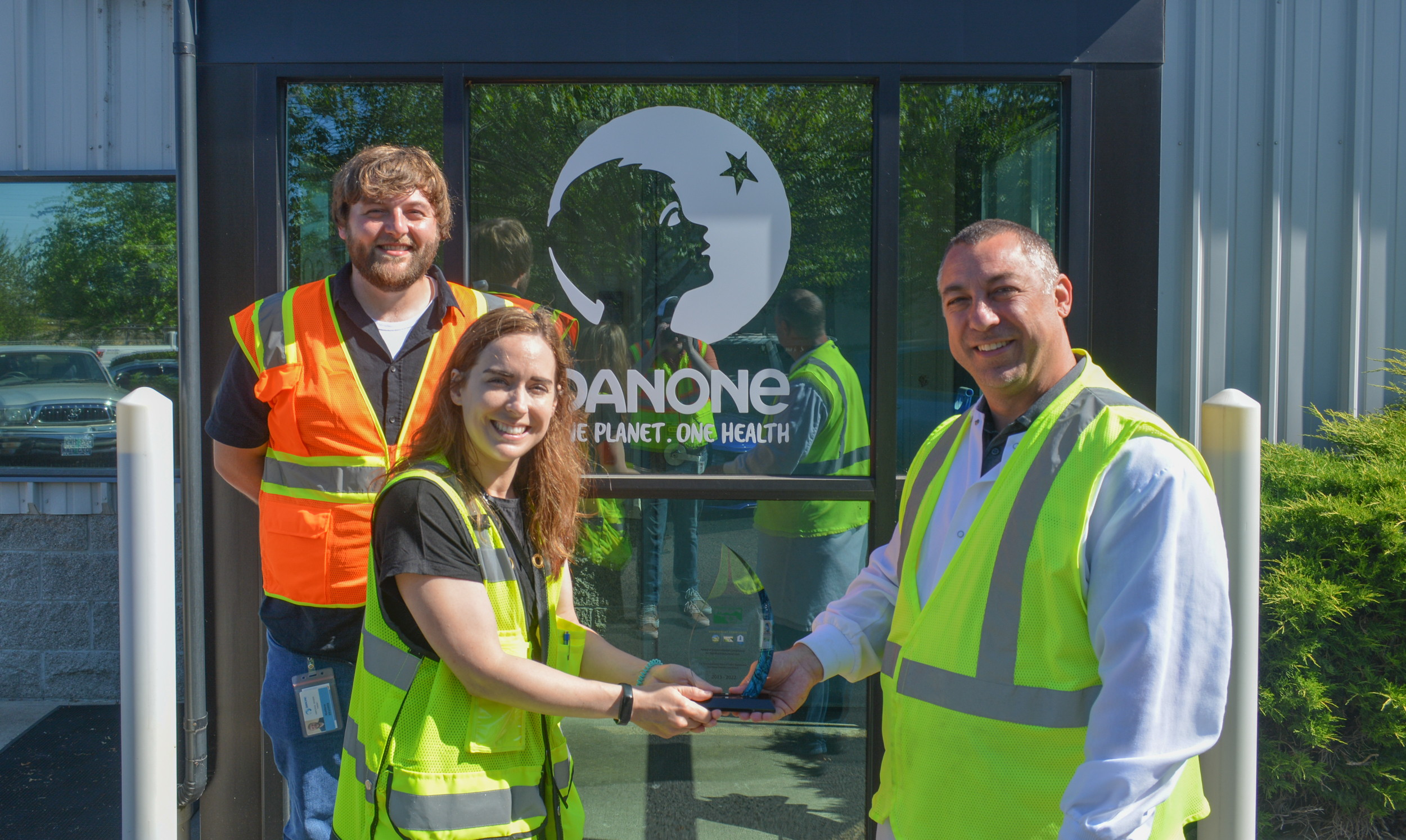
Congratulations to Turtle Mountain at the Shelley Street location! For 2022, they received a trophy for 10 consecutive years of 100% compliance.
Whenever possible, individuals and organizations should take action to reduce or eliminate wastes at the source:
FOG – fats, oils, and grease — is a problem for all of us. When FOG goes down the drain it cools and hardens and sticks to the pipes in your home or business and in the public wastewater system. It builds up in pipes, and eventually blocks water from flowing through. When that happens, used water can back up into your home or business or cause a sewer overflow. It’s messy, and it can be expensive, but we can all take steps to prevent FOG.
Food service facilities
The best FOG prevention is an effective pretreatment system, which can prevent ongoing issues and save time and money. An effective system is in place when all food and beverage service drains are connected to an appropriately sized grease interceptor, and the system is on an effective maintenance cycle.
Food service establishments may be required to make changes to their FOG treatment during several scenarios:
- New construction.
- Tenants make improvements or remodel.
- Grease interceptor installed in existing structure.
- Ownership change.
Can the grease
Email mwmcpartners@springfield-or.gov to request a free FOG kit for your home. It includes a pan scraper, a plastic lid that fits metal cans, and easy-to-follow instructions. Check out this short video to learn why your pipes will thank you!
The Environmental Protection Agency requires Industrial users to submit a notification of hazardous waste discharged to the wastewater system, under Federal Regulation 40 CFR Part 403.12(p) and in Springfield Municipal Code section 4.016.
The requirement stipulates that industrial users that discharge, into the wastewater system, more than 33 lbs (15 kg) of any material (gas, liquid, or solid) that would be classified as hazardous waste under Federal Code (40 CFR 261) must:
- Obtain prior written approval from the City of Springfield. Do this through the Industrial Pretreatment Program, Environmental Services Division, Development and Public Works Department.
- Notify the Environmental Protection Agency’s Regional Waste Management Division Director.
- Notify the Oregon Department of Environmental Quality’s hazardous waste authority.
Mercury is a naturally occurring element that can be found in products such as dental amalgam, batteries, compact fluorescent lights, jewelry, skin creams, paint thermometers, switches, and relays, etc. While many of these products probably won’t reach the wastewater system in large quantities, we want to keep mercury out of the environment as much as possible. Our wastewater treatment plant isn’t designed to remove metals like mercury and silver, and we need help from businesses and industries to comply with federal and state laws and take steps to reduce pollution.
Dental waste
The Oregon Dental Association, Oregon Department of Environmental Quality, and local jurisdictions such as the City of Springfield developed best management practices to recycle mercury, amalgam, silver, and lead, and keep these pollutants out of the wastewater stream. For dental office information, scroll down to our section for the Best Management Practices (BMP) Program.
Septage is liquid and solid material removed from septic tanks or other holding tanks for domestic sewage. Chemical toilet waste is liquid and solid material removed from portable chemical toilets.
Septage haulers can be licensed to discharge at the Eugene/Springfield Wastewater Treatment Plant at 410 River Avenue in Eugene. Those who want to be licensed or who have questions about whether certain septage will be accepted should contact the Eugene/Springfield Wastewater Treatment Plant at 541.682.8600. (Material containing industrial waste is not accepted.)
As your partner in water resources management, our Industrial Pretreatment staff provide guidance and technical assistance to ensure you’re in compliance with federal regulations. Our process helps you navigate regulations and dispose of wastewater responsibly, including temporary discharges such as line-flushing water, dewatering, or short-term projects.
To get started:
- Complete and submit the Temporary Discharge Application from the Forms section below.
- Receive an official letter of authorization prior to discharge.
The application determines if the discharge is allowable under Springfield Municipal Code. It assists City staff by identifying the proposed discharge’s volume (for billing and system capacity), general characteristics, and potential for hazards. Once received, City staff will review your request for final approval.
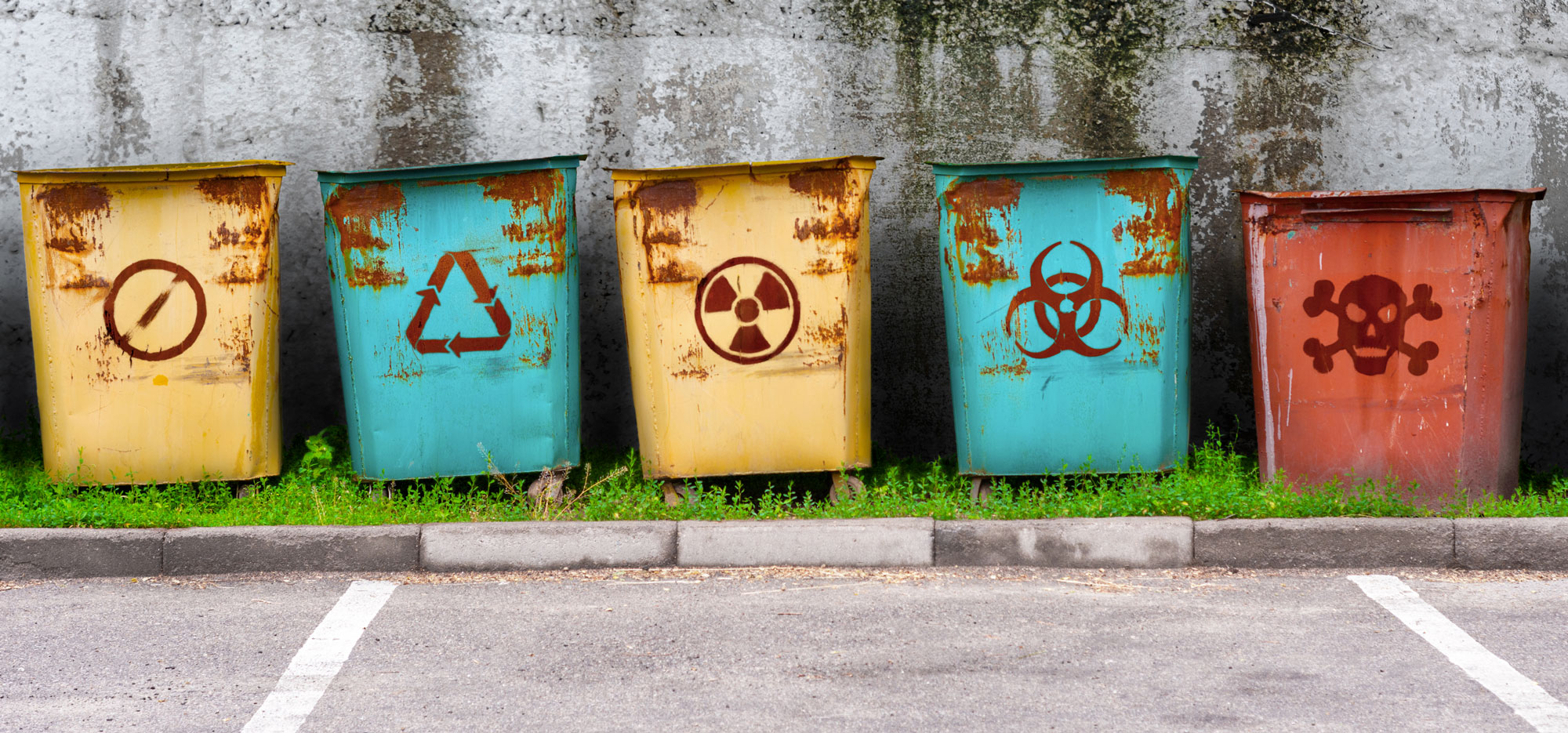
The wastewater treatment plant for our area is located in Eugene, meaning the wastewater generated in Springfield, Eugene, and parts of Lane County all go to the same location for treatment and mostly share the same requirements. The cities of Eugene and Springfield manage separate Pretreatment Programs, but work closely together because the wastewater is treated at the same place. The regional facility is managed by the Metropolitan Wastewater Management Commission, which is a partnership between Eugene, Springfield, and Lane County.
Regional information on Industrial Pretreatment:
Regional Operations – City of Eugene – Wastewater Division
410 River Avenue, Eugene, OR 97404
541.682.8600
MWMC’s pretreatment: mwmcpartners.org/about-the-mwmc/industrial-pretreatment
Eugene’s pretreatment: eugene-or.gov/456/Industrial-Source-Control-Program
Form submission:
Completed and signed forms must be submitted in person or by mail to the Environmental Services Division, Main Office at 225 5th Street, Springfield, OR, 97477.
Springfield information on Industrial Pretreatment:
Environmental Services Division,
Main Office
dpw@springfield-or.gov
541.726.3753
Shawn Krueger,
Environmental Services Supervisor
skrueger@springfield-or.gov
541.736.1018

